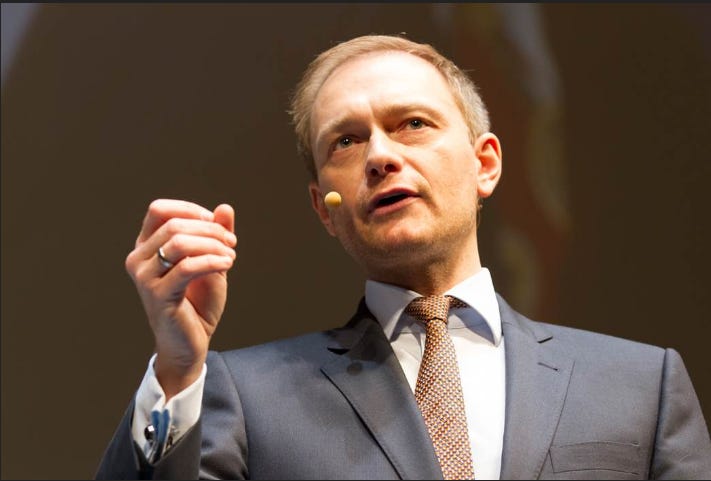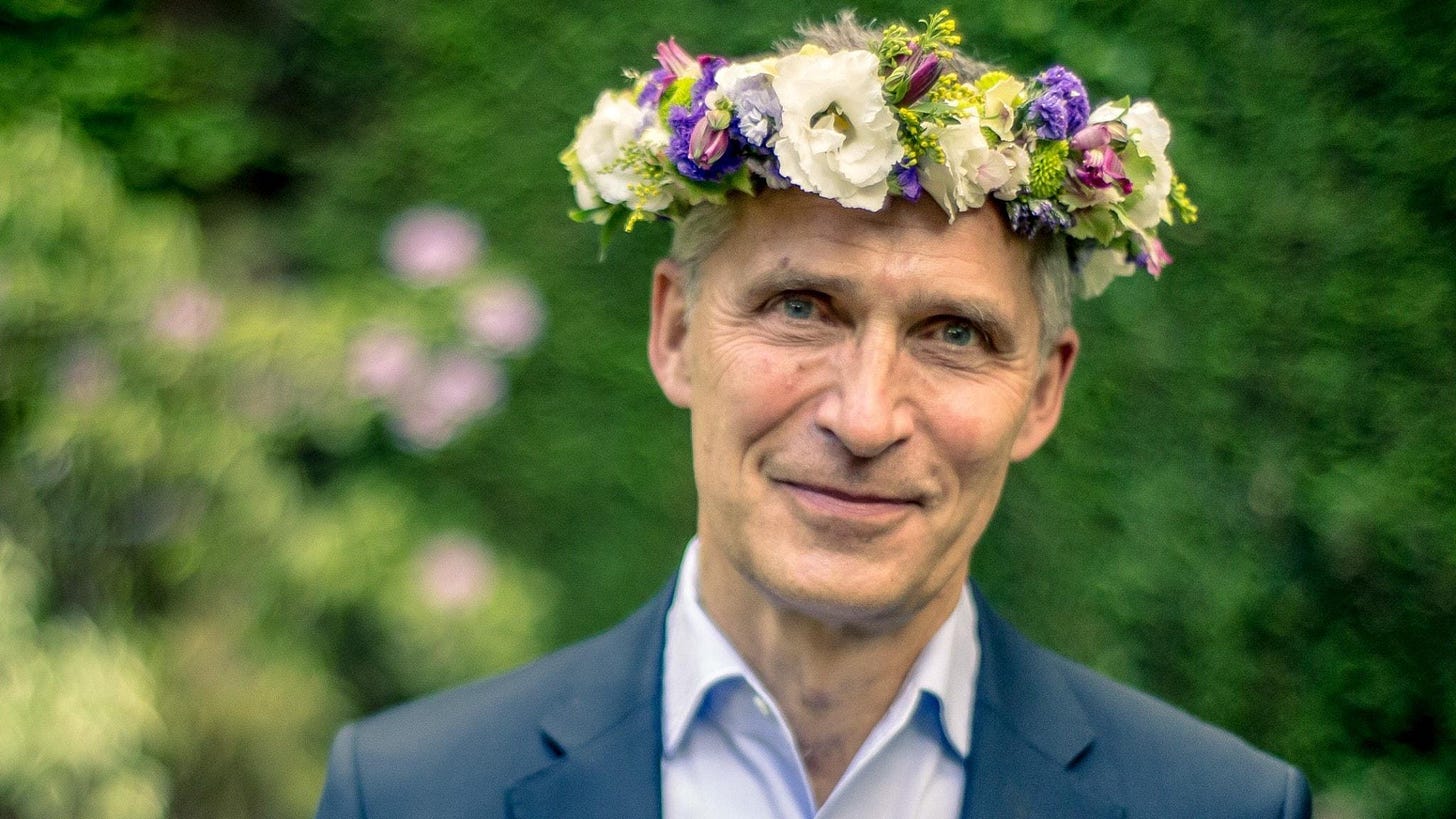One Agenda, One Narrative
We reflect on the public statements issued by Europe's leading figures condemning Russia's recent presidential election
This post is a follow-up to the one published on Sunday. In it, we mentioned how we could almost predict the emotional and childish remarks waiting to be issued by various “pro-democracy” advocates in Europe. Now, following the announcement of Putin’s victory, this is how Europe’s leading figures are reacting:
1. Zelensky
Ukraine’s (election-free) president posted this transcript of a now-deleted video on Twitter:
These days, the Russian dictator imitates another "elections." Everyone in the world understands that this person, like many others throughout history, has become sick with power and will stop at nothing to rule forever.
There is no evil he would not do to maintain his personal power. And no one in the world would have been safeguarded from this.
I am grateful to every state, leader, and international organization that has and will continue to call these things by their proper names.
Everything Russia does in Ukraine’s occupied territories is a crime. There should be a fair response to everything the Russian murderers did in this war to secure Putin's eternal rule. Only one thing scares him the most: accountability.
This imitation of "elections" has no legitimacy and cannot have any. This person must end up on the dock in The Hague. This is what we must ensure. Anyone in the world who values life and decency.
This somewhat incoherent statement is best summarized as: “The election in Russia didn’t go the way we desired it to, Putin is addicted to power and is unpredictable/unreasonable, most of the global power structure is against him, Putin’s out of control and these elections are only a further insult to our electoral system. Putin needs to be not only punished, but persecuted.” This seems to be Zelensky’s desire. No deals, no truces. Just vindictive obsession.
2. Josep Borrell
The EU Commission’s vice president posted the following to his official Twitter account:
The presidential elections in Russia took place in a highly restricted environment, with voters deprived of a real choice and systematic internal repression.
We condemn the illegal holding of so-called “elections” in the occupied Ukrainian territories.
In the post, Borrell also posted the URL for the commission’s official statement.
A member of Spain’s ruling Socialist Workers' Party, Borrell visited Russia in 2021 as EU High Representative for Foreign Affairs. During the visit, his counterpart Sergey Lavrov referred to the EU as an “unreliable partner”, with Russian authorities expelling three EU diplomats during Borrell and Lavrov’s joint press briefing in Moscow. Sour grapes?
3. Christian Lindner
Lindner, the leader of Germany’s neoliberal Freie Demokratische Partei (FDP) has taken increasingly Russophobic stances since the start of the Special Military Operation in Ukraine. Nevertheless, there are reports he secretly warned against German military aid to Ukraine in the first few days following Russia’s intervention, believing Kiev was doomed.
Judging by his vocal complaints on Twitter, Putin and his alleged misdeeds seem to be the dominant thought on Lindner’s mind. He posted the following remark (in German) to Twitter:
#Putin has been re-elected – without a real choice. Nevertheless, despite all the risks, many people have silently protested in front of the polling stations that they want freedom in Russia. We must not forget this democratic opposition. CL
It seems silent protestors are the only sort Lindner can bring himself to approve of, given his recent address to participants of Germany’s large-scale, popular and vocal anti-government farmer protests. According to Lindner, there’s no more money for German farmers, but plenty of money for Ukraine. Doesn’t make a lot of sense, does it?
4. Jens Stoltenberg
Yes, this is seriously the head of the world’s largest military alliance. What’s more, his term as NATO Secretary General actually expired some time ago. Despite appearances, he can be quite outspoken where Russia and its leadership is concerned, claiming on Monday that the recent elections were “neither free nor fair.” He also referred to Russia’s organization of elections “in occupied parts of Georgia and Ukraine” as “completely illegal”. Since Stoltenberg holds such a high regard for legalism, maybe he’ll consider stepping down from his position?
Not likely.
However, given Stoltenberg’s “problems” we imagine he’ll be getting the boot soon enough. Just not before he’s done everything he can to demonize Russia and glorify the regime in Kiev.
5. Alexander Lukashenko
Belarus’ popular president is well-known for his down-to-earth manner. His message to the Russian world following Putin’s victory, however, was clear-cut:
“The results are, of course, stunning. It’s a serious signal to the West, which has sought to destabilize the domestic situation in Russia.”
Despite being falsely portrayed in western media as a “Putin puppet” governing a country dependent on Russia, Lukashenko’s Belarus has kept a strong independent streak, and while Belarus is very close to Russia culturally, political ties only go so far. Luka’s message is clear: “The enemy of my enemy is my friend. Our mutual struggle has popular support.” The west condemned the 2020 Belarus elections with such an air of arrogance and contempt, that Putin and Russia are experiencing a mild reproach in comparison.
Whose perspective holds greater relevance? Michel: A bureaucrat beholden to corporate and foreign interests? Stoltenberg: A talking head waiting to be put out to pasture? Or Lukashenko, directly responsible for the policy of Russia’s closest neighbor? Well, We hope our brief post today has helped answer this question. EU officials don’t hold personal opinions, or if they do, they certainly don’t express them. They represent policy, not ideology: Despite what it may seem. Unfortunately, many Europeans, including those who dislike the EU as an organization, still rely on official statements and commentaries to form their perspectives on Russia. Don’t do this. If Duda lied to you about immigration, why wouldn’t he lie to you about Russia?
We hoped you enjoyed reading our second special post on the 2024 Russian election. For various reasons we haven’t discussed the events of the election itself, our readers can probably understand why. Later tonight, we’ll be publishing another interview with the indestructible Roman Donetsky, which we highly recommend you read. If you got something out of this post, go and share it with your friends (or e-friends). Feel free to write a comment below. Until next time: Счастливого плавания!








